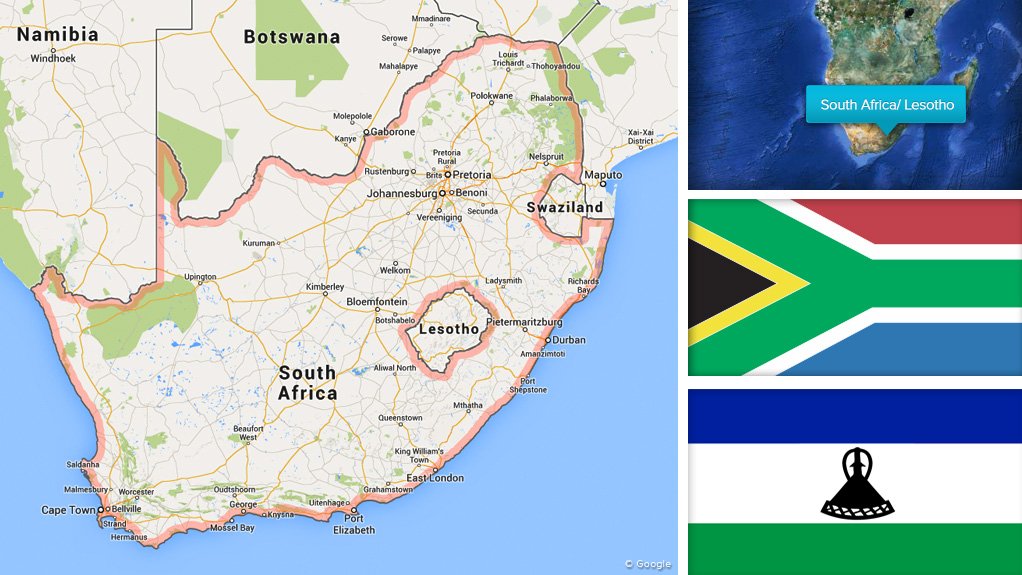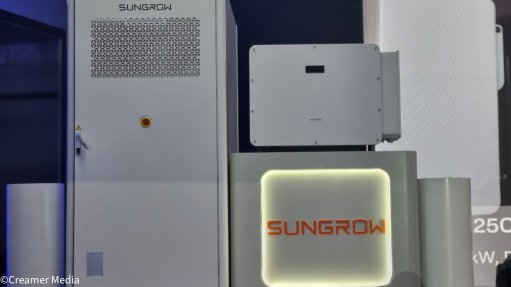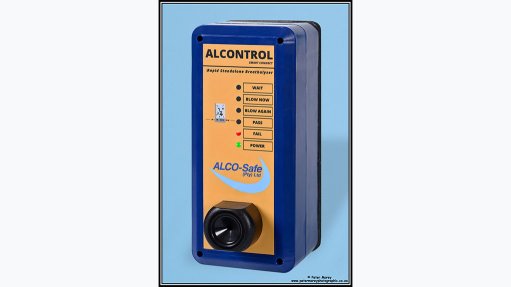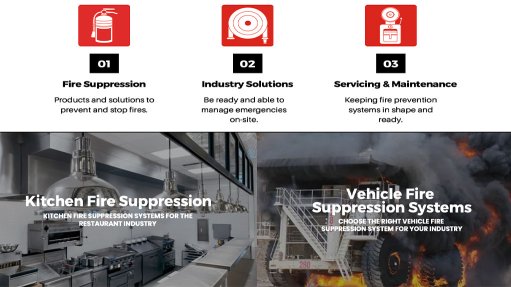Lesotho Highlands Water Project – Phase II, Lesotho to South Africa.
Name and Location
Lesotho Highlands Water Project (LHWP) – Phase II, Lesotho to South Africa.
Client
The Lesotho Highlands Development Authority (LHDA) and the Trans-Caledon Tunnel Authority (TCTA) are the implementing authorities.
The Lesotho Highlands Water Commission has an oversight function, advises the two governments and monitors the activities of the LHDA and TCTA.
Project Description
Phase I of the LHWP was officially completed in 2004.
Phase II of the LHWP will be implemented in terms of two distinct components – a water delivery system to augment the delivery of water to South Africa and a hydropower generation system.
Polihali dam
The Polihali dam will be built downstream of the confluence of the Senqu and Khubelu rivers and will be a 163.5-m-high concrete-faced rockfill embankment dam wall. The crest length will be 915 m, with a full supply level of 2 075 m above sea level. A 49.5-m-high saddle dam and a side channel spillway will also be built.
Polihali to Katse tunnel
The 38.2-km-long, 5-m-diameter Polihali to Katse dam tunnel will be constructed to transfer water from the Polihali reservoir to the Katse dam. The tunnel is sized to convey a peak power generation flow of 35 m3/s. Water will be abstracted from the Polihali reservoir through two separate concrete bell-mouth intakes on the western side of the Polihali reservoir in the Khubelu river, three kilometres upstream of the confluence with the Senqu. Water will be transferred through the lower and upper intake tunnels to the intake gate shaft. Both tunnels will be constructed using drill-and-blast methods and will be fully concrete lined. Hydraulic control will be effected by the valves in the intake structures. The Polihali intake gate shaft will be used only for maintenance and water-quality control functions.
Advance infrastructure
Where possible, the existing infrastructure constructed in Phase I will be used. This includes access roads, power supply, telecommunication systems and camps.
There will also be significant additional works contracts awarded for the construction of all weather access roads, a bulk power supply network, telecommunications systems and project housing and labour camps on both ends of the transfer tunnel.
A permanent housing development will be established near the Polihali dam and transfer tunnel, which will consist of project offices, residential and community facilities. This will require extensive infrastructure development before the mobilisation of contractors for the two main works contracts – the Polihali dam and transfer tunnel.
The Polihali intake site will use the infrastructure required to construct the Polihali dam and the tunnel. This includes feeder roads and bridges around the reservoir to connect affected communities, power supply systems, construction camps and communications.
The facilities at Katse dam will be used for the Polihali to Katse tunnel construction. Existing facilities will be used to house consultants and construction management teams. Improvements to the water and sewage treatment plants, clinic and lodge will be undertaken. A primary school will be built.
The existing camp for construction workers at Mphorosane will be refurbished for use by the Polihali to Katse tunnel contractors. Improvements and expansions to the existing water and sewage treatment plants will be required. Other ancillary services will be constructed as determined during the design phase. A satellite police station and accommodation facilities will be built and manned by Lesotho.
The upgrading of the existing hospital facilities at the Mamahau mission will be investigated and implemented to serve as a jointly managed project hospital, if deemed feasible.
Other infrastructure
In addition to the main access roads to service the construction phase, other access and feeder roads will be constructed around the reservoir to connect affected communities using pedestrian and light vehicle bridges, while a pair of major road bridges will be built over the Polihali reservoir at Tlhakola, crossing the Khubelu river and near Mokhotlong, crossing the Senqu river.
Environmental measures
Environmental mitigation measures, including environmental flow matters and baseline studies, will be implemented. The full extent is being studied in detail for implementation.
An environmental and social management programme is being implemented to address potential environmental and social impacts associated with Phase II activities. The programme comprises baseline studies, including environmental flow requirements; biological and archaeological (including heritage); socioeconomic; and public health. The programme also includes environmental and social-impact assessments and implementation of the subsequent environmental and social management and action plans.
Social development programmes
Social development programmes, mitigation measures, resettlement requirements and baseline studies, as well as public relations and awareness campaigns, will be implemented. The full extent of these measures are being studied and discussed. Their implementation will soon be agreed to by the parties to impose the absolute minimum disruption to the affected households and communities.
These infrastructure developments may include medical clinics, feeder roads and bridges around the reservoir to connect affected communities and social development projects such as schools, churches and community halls.
Pumped-storage scheme
Phase II may also include a pumped-storage scheme and associated transmission lines and works using the existing Katse reservoir as the lower reservoir and a new upper reservoir in the Kobong Valley. The implementation of the scheme is subject to a joint decision by the two governments, which is still being debated.
Value
The project is expected to cost R17.5-billion at completion.
Duration
Phase 2 of the LHWP is expected to start supplying South Africa with water by 2023.
Latest Developments
The LHDA has issued requests for proposals (RFPs) for four consultancy contracts involving demarcation of the Polihali reservoir full supply level, upgrading of an existing gravel road between Mapholaneng and Tloha Re Bue, and advance geotechnical investigation works and resettlement planning services related to Phase II of the LHWP.
The proposed geotechnical investigations are to be undertaken in two stages; the first of which will involve core drilling, a seismic refraction survey, sand sampling and proving of quarry sites for material suitable for use as concrete aggregates at the Polihali dam site and proposed Polihali–Katse transfer tunnel.
Stage 2 investigations and testing will be undertaken following completion of the Stage 1 investigations and will be informed by the requirements of the dam and tunnel design engineers.
The LHDA, meanwhile, has also called for bidders to submit tenders for professional services for resettlement planning and implementation pertaining to the Polihali north-east access road (PNEAR) and site establishment areas.
The PNEAR would be the initial access road to the Polihali dam site, nearby construction areas and the selected route for the main Polihali western access road (PWAR), which will run from Matsoku Valley to the Polihali dam site.
It will extend for about 17 km along an existing gravel road, which will be upgraded to gravel standard with a 30 m servitude.
The site establishment areas include the tunnel inlet works area, the dam works area and areas required for quarries, workshops, offices and accommodation facilities.
The overall objective of this assignment is to prepare and implement a resettlement programme to address the involuntary resettlement impacts associated with these project components.
According to the tender documents, an estimated 111 households may have to be relocated from the site establishment areas, with some residential properties also expected to be affected by the PNEAR upgrading works. In addition, agricultural fields, trees and graves will be affected.
The scope of the services entails detailed resettlement planning, culminating in the submission of resettlement action plans, followed by the implementation and management of approved resettlement activities.
The LHDA has also invited proposals for professional services for the design and construction supervision pertaining to the upgrade of Katse Lodge, in Lesotho.
The implementing authority says it expects the need for accommodation at Katse Lodge to increase, owing to the proposed construction activities associated with the Polihali–Katse transfer tunnel and the PWAR.
“The purpose of these works is to modernise the lodge and increase its capacity to cater for the expected increased volumes of visitors,” it states.
The upgrading works entail the refurbishment and remodelling of the existing lodge facilities to transform the lodge into a modern facility capable of attaining a three-star hotel rating in accordance with the Tourism Grading Council of South Africa.
The capacity of the dining, lounge and other facilities will be increased through the addition of a first floor above that section of the existing lodge.
The evaluation of bids is ongoing and prebid meetings and site visits have been scheduled.
On Budget and on Time?
Too early to state.
Key Contracts and Suppliers
C4/Seed joint venture (feasibility study); the TCTA (debt management and funding of the water-transfer portion of the project, as well as the operation and maintenance of the delivery tunnel north); Mops Civil (access road) and Aecon (construction of measuring weir).
Contact Details for Project Information
LHDA public relations manager Masilo Phakoe, tel +266 2224 6000 or email phakoem@lhda.org.ls.
Article Enquiry
Email Article
Save Article
To advertise email advertising@creamermedia.co.za or click here
Comments
Press Office
Announcements
What's On
Subscribe to improve your user experience...
Option 1 (equivalent of R125 a month):
Receive a weekly copy of Creamer Media's Engineering News & Mining Weekly magazine
(print copy for those in South Africa and e-magazine for those outside of South Africa)
Receive daily email newsletters
Access to full search results
Access archive of magazine back copies
Access to Projects in Progress
Access to ONE Research Report of your choice in PDF format
Option 2 (equivalent of R375 a month):
All benefits from Option 1
PLUS
Access to Creamer Media's Research Channel Africa for ALL Research Reports, in PDF format, on various industrial and mining sectors
including Electricity; Water; Energy Transition; Hydrogen; Roads, Rail and Ports; Coal; Gold; Platinum; Battery Metals; etc.
Already a subscriber?
Forgotten your password?
Receive weekly copy of Creamer Media's Engineering News & Mining Weekly magazine (print copy for those in South Africa and e-magazine for those outside of South Africa)
➕
Recieve daily email newsletters
➕
Access to full search results
➕
Access archive of magazine back copies
➕
Access to Projects in Progress
➕
Access to ONE Research Report of your choice in PDF format
RESEARCH CHANNEL AFRICA
R4500 (equivalent of R375 a month)
SUBSCRIBEAll benefits from Option 1
➕
Access to Creamer Media's Research Channel Africa for ALL Research Reports on various industrial and mining sectors, in PDF format, including on:
Electricity
➕
Water
➕
Energy Transition
➕
Hydrogen
➕
Roads, Rail and Ports
➕
Coal
➕
Gold
➕
Platinum
➕
Battery Metals
➕
etc.
Receive all benefits from Option 1 or Option 2 delivered to numerous people at your company
➕
Multiple User names and Passwords for simultaneous log-ins
➕
Intranet integration access to all in your organisation




















